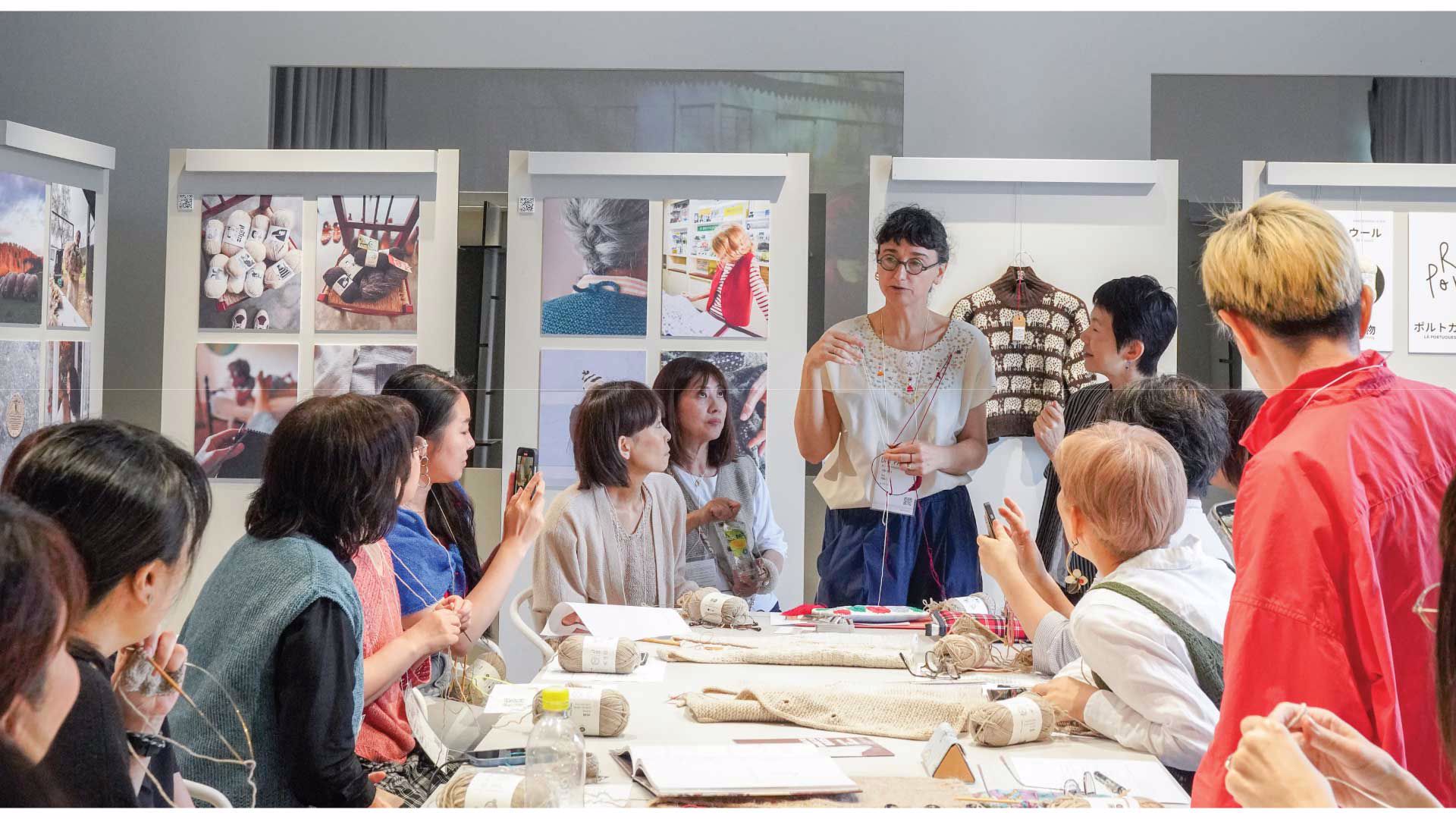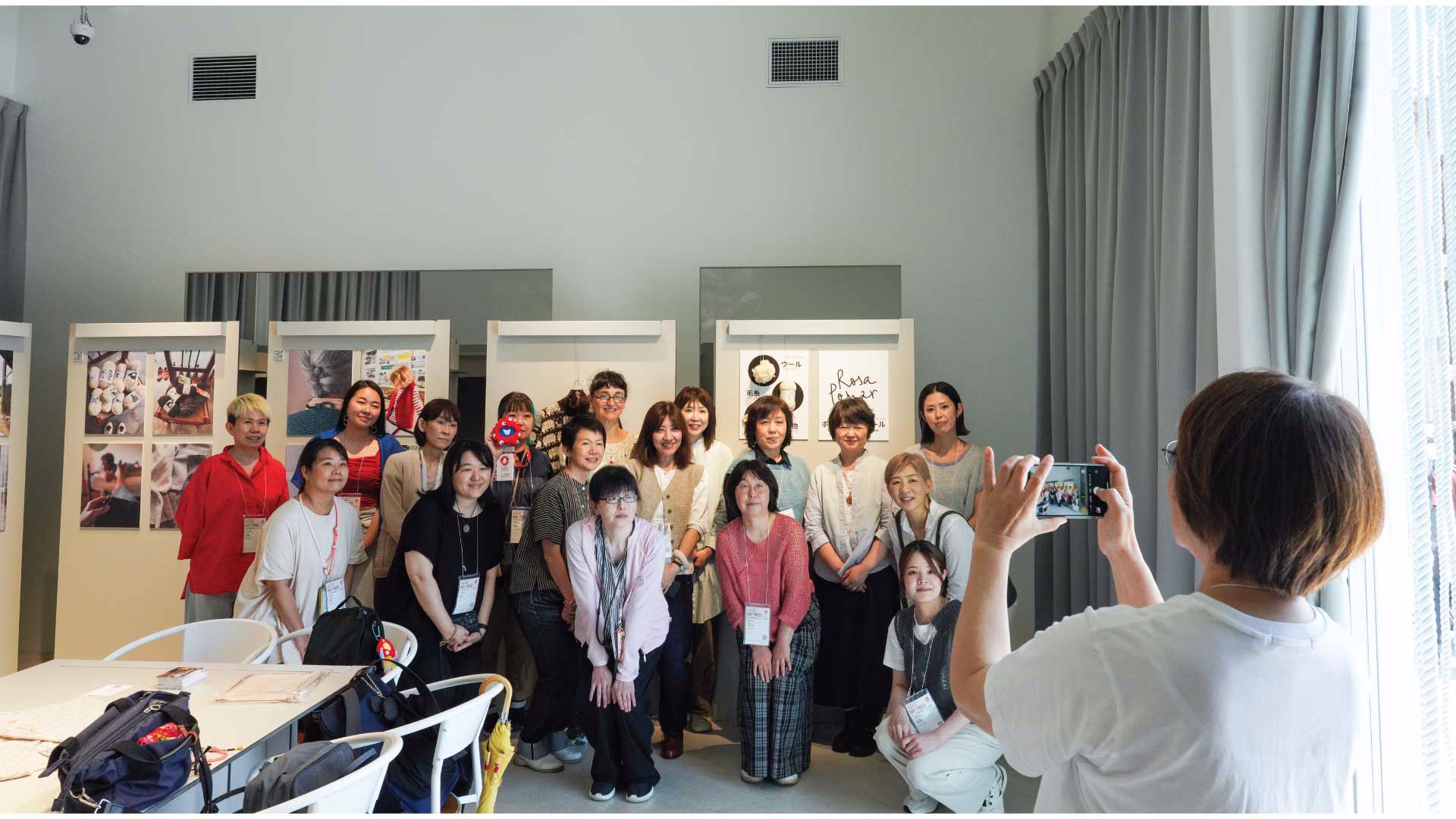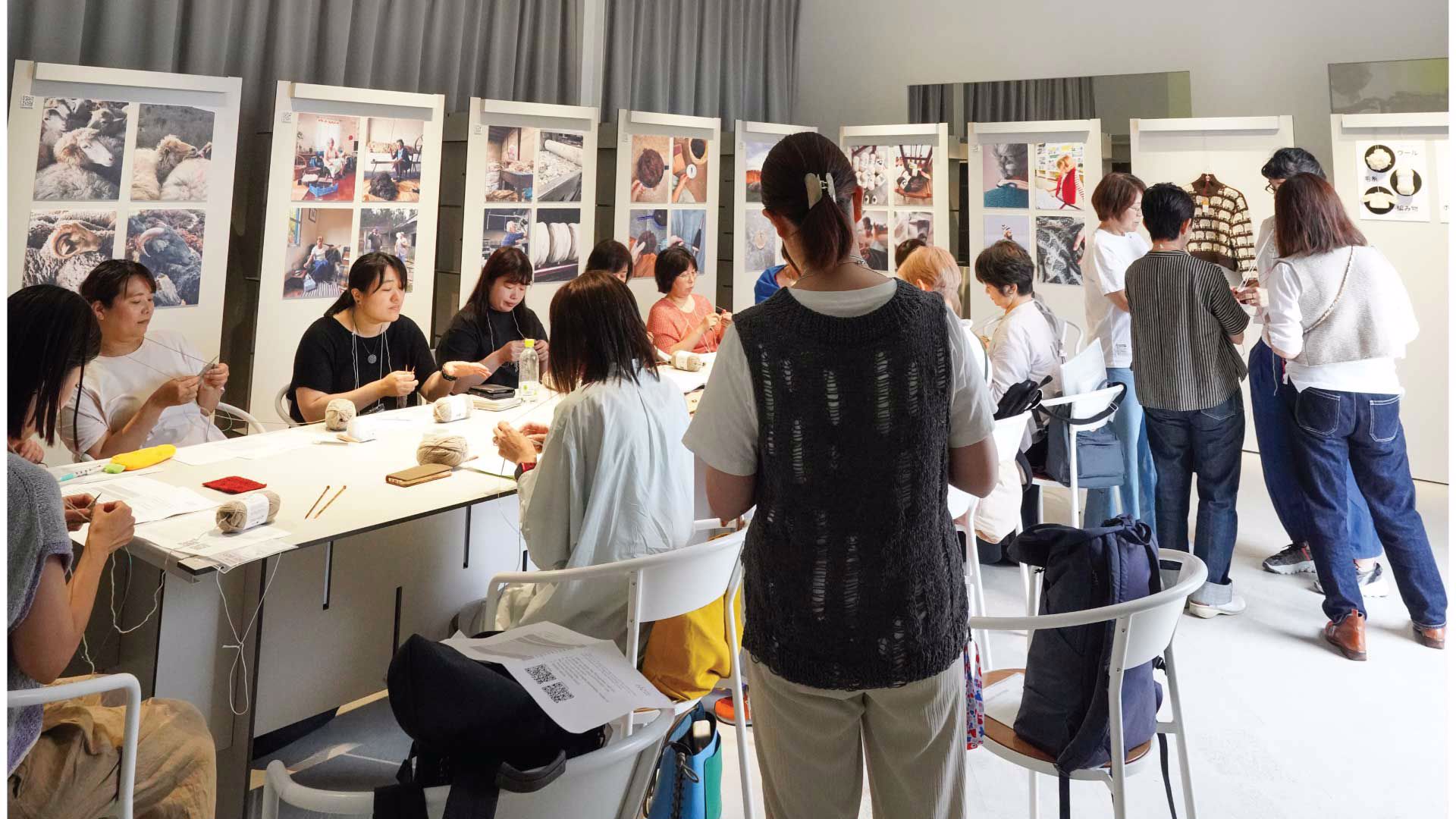For two days, the Portugal Pavilion at Expo 2025 Osaka became a space for sharing Portuguese textile traditions. Artisan Rosa Pomar led workshops in knitting and hand-spinning with Portuguese wool, bringing together Japanese participants around age-old techniques that combine craftsmanship, sustainability and identity. The initiative also highlighted the growing presence of Rosa’s brand in Japan, where her products have been available for over a decade.
In the morning, 15 participants gathered around a table to learn directly from Rosa Pomar. With steady hands and a calm voice, she demonstrated traditional Portuguese spinning techniques using wool from native sheep breeds. On display, naturally dyed yarns and finished pieces reflected the care and coherence of a practice rooted in heritage and contemporary design.
In the morning, 15 participants gathered around a table to learn directly from Rosa Pomar. With steady hands and a calm voice, she demonstrated traditional Portuguese spinning techniques using wool from native sheep breeds. On display, naturally dyed yarns and finished pieces reflected the care and coherence of a practice rooted in heritage and contemporary design.

The workshops – held on 16 and 17 June – focused on knitting and traditional spinning, and were quickly fully booked. Some came out of curiosity, others already had experience, and a few wore garments made with Rosa’s own yarns – a gesture she described as “deeply symbolic”.
Among the attendees, Kanae Koyama said she started knitting about three years ago, when her child began preschool. It was her first contact with Portuguese techniques, and she found it highly enriching. Mikako Harada, who learned to knit as a child with her aunt, signed up as soon as she heard about the workshop. Both left with smiles and new projects in hand. “They learned really quickly, and were truly engaged,” Rosa noted. “It was beautiful to witness their respect for the craft.”
Among the attendees, Kanae Koyama said she started knitting about three years ago, when her child began preschool. It was her first contact with Portuguese techniques, and she found it highly enriching. Mikako Harada, who learned to knit as a child with her aunt, signed up as soon as she heard about the workshop. Both left with smiles and new projects in hand. “They learned really quickly, and were truly engaged,” Rosa noted. “It was beautiful to witness their respect for the craft.”

Rosa Pomar’s connection to Japan is not new. Her products are stocked in seven shops across cities like Tokyo, Osaka, Kyoto and Fukuoka. In fact, the very first Japanese shop to carry her brand was in Osaka – the host city of this year’s Expo.
Japan imports thousands of tonnes of wool each year – around 3,200 tonnes in 2022 – in a market worth over 18 million dollars. While dominated by large suppliers like Australia and New Zealand, there is a growing niche for sustainable, artisanal products. Natural fibres alone are projected to reach a market value of 5.3 billion dollars in Japan by 2030.
Japan imports thousands of tonnes of wool each year – around 3,200 tonnes in 2022 – in a market worth over 18 million dollars. While dominated by large suppliers like Australia and New Zealand, there is a growing niche for sustainable, artisanal products. Natural fibres alone are projected to reach a market value of 5.3 billion dollars in Japan by 2030.

“We are a niche product,” Rosa explains, “but with a strong identity that is increasingly recognised, both in Europe and in Japan.” Her work brings together traditional Portuguese knowledge, local production and sustainable practices using wool from native breeds – some of them endangered – appreciated by a conscious and demanding public.
Her presence at Expo 2025 Osaka is part of the cultural programme of the Portugal Pavilion, which showcases creators and artistic expressions rooted in place, tradition and sustainability. A quiet presence — but a deeply symbolic one.
Her presence at Expo 2025 Osaka is part of the cultural programme of the Portugal Pavilion, which showcases creators and artistic expressions rooted in place, tradition and sustainability. A quiet presence — but a deeply symbolic one.




